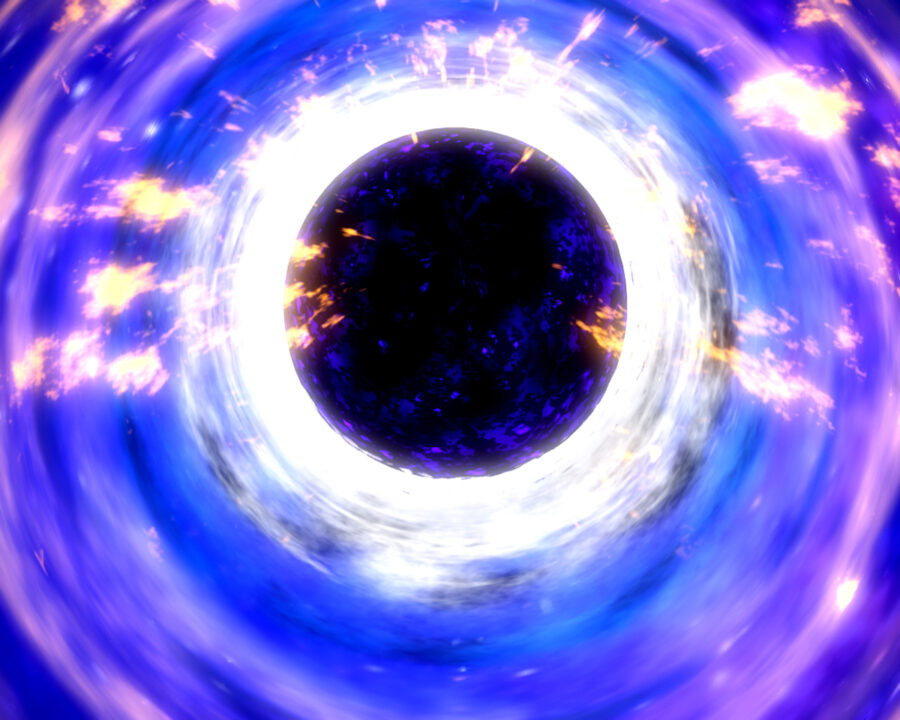NASA Releases Audio From A Black Hole And It’s Creepy
NASA has released the sound of a black hole screaming across light years and, unsurprisingly, it is terrifying.
This article is more than 2 years old

They say that in space, no one can hear you scream. That is not only a great tagline for a classic science fiction film, it is true that sound waves cannot travel through the vacuum of empty space. Despite that, NASA has found a way to capture audio that seems to be emanating from a supermassive black hole some 240 light years from our own solar system. As you might expect, the sound that NASA has presented as the song of a black hole to the world is utterly alien, terrifying, and a taste of cosmic darkness you might find in a goth ambient album. Have a listen, if you dare:
That sound is emanating from what is known as the Perseus Cluster. It is a collection of galaxies bound together by an even more massive cloud of incredibly hot gas, forming one of the single most mind-bogglingly huge objects that have ever been observed in the known universe. That this cluster of galaxies exists at all would be fascinating enough, but in 2003, researchers at Cambridge University discovered that the gas that surrounds and connects the Perseus Cluster together is, in a word, rippling. As NASA explains, to a scientist, ripples in a gas equal sound and they believe this to be originating from an inconceivably huge black hole in the center of the cluster that causes pressure changes in the gas. Scientists being what they are, NASA converted astronomical data collected from the gas into sound waves, approximating what the sound could sound like if anyone ever could ever hear it.
However, it is definite that no one ever will. For one thing, the Perseus Cluster is hundreds of light years away (and rapidly moving away from us). For another, the actual sound is 57 octaves below a middle C note; at best, humans can hear about 10 octaves below that middle note. However, this NASA interpretation of the sound is the best we will likely ever come to understanding what it would be like if a black hole tried to express itself in musical form.
NASA also has to make the assumption that the sound is ultimately coming from a black hole in the Perseus cluster due to a number of factors. For one thing, the cluster is so far away that it makes concrete observations difficult. For another, black holes by definition cannot be observed directly, as their super-dense mass will not allow for light. As such, we can only ever study them by their effects on the space around them.
NASA has recently been in the news due to the unprecedently clear and detailed photographs it has received from the James Webb Space Telescope. However, it does seem like NASA could also be wowing people by creating some kind of “dark sounds of the universe” playlist and selling downloads. At the very least, the agency has probably sparked a hundred new science fiction stories about the sounds that various astronomical bodies make between themselves.












